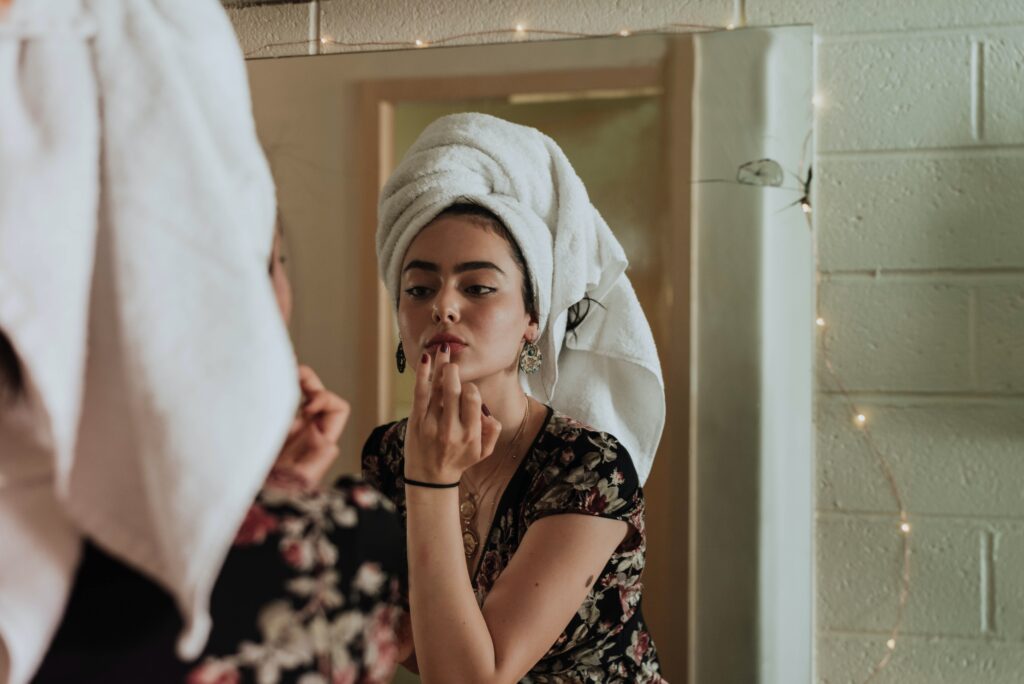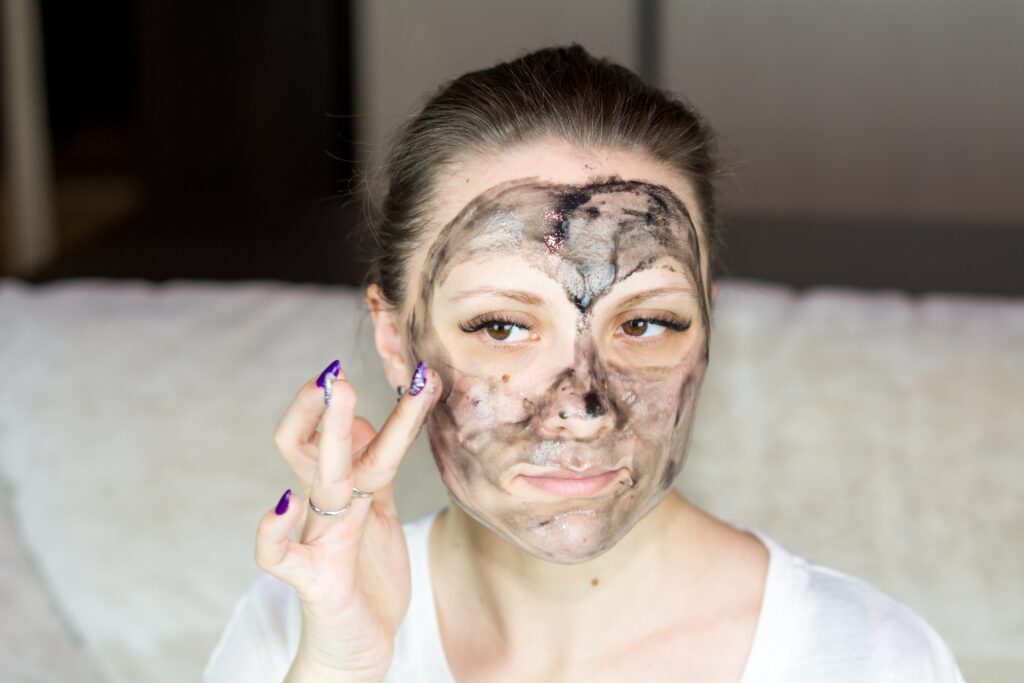A Beginner’s Guide to Skin Care
The pursuit of healthy, glowing skin is a universal desire shared by all of us. Our skin is challenged by a variety of factors in the fast-paced world of modern living, including environmental irritants and the effects of daily stress.
Skincare is more than just about appearance; it is a necessary practice that promotes overall well-being. Following a routine and using essential products to keep our skin healthy and looking good is what skin care entails.
Understanding your skin type, and common concerns, and implementing a suitable skincare routine can lead to remarkable improvements in the health and appearance of your skin.
Incorporating skincare into our self-care practices can provide a multitude of benefits for both our physical and mental well-being.
By the time you finish reading this blog, you will have the information and resources needed to get healthy, radiant skin. let’s learn about the essential components of skin care.
Understanding of skincare:
Skin care refers to the practices and products used to maintain the health, vitality, and appearance of the skin. It involves various steps, such as cleansing, exfoliating, moisturizing, and treating the skin, to promote optimal health and appearance.
The primary goal of skin care is to nourish and protect the skin while addressing specific concerns and maintaining a balanced complexion. By adopting a consistent skincare routine, you can enhance the overall well-being of your skin.
Identifying Your Skin Type:
Understanding your skin type is crucial for tailoring a skincare routine that caters to unique needs. Skin types typically fall into five categories: normal, dry, oily, combination, and sensitive.
You can identify your skin type by examining certain characteristics such as oiliness, hydration levels, and sensitivity to products or environmental factors.
By knowing your skin type, you can select products and treatments that are specifically tailored to address your skin’s unique needs.
Consulting a dermatologist can provide further insight into your specific needs.
Common Skincare Concerns:
Skincare concerns can vary widely among individuals, but there are some common issues that many people face.
Acne and breakouts:
- Acne is a prevalent concern affecting individuals of all ages. It arises from a combination of factors, including hormonal fluctuations, excess oil production, and bacterial growth.
- Implementing a cleansing and exfoliation routine, along with targeted treatments, can help alleviate breakouts and prevent future occurrences.
Hyperpigmentation:
- Hyperpigmentation refers to dark spots or patches that appear on the skin due to factors like sun exposure, hormonal changes, or post-inflammatory conditions.
- Incorporating ingredients like vitamin C, retinol, and niacinamide can help reduce hyperpigmentation and restore a more even skin tone.
Aging and Wrinkles:
- As we age, our skin experiences a natural decline in collagen and elastin production, leading to the formation of wrinkles and fine lines.
- Antioxidant-rich products, such as those containing vitamin E and green tea extract, along with the use of retinoids, can help minimize the visible signs of aging and promote a youthful complexion.
Daily Skincare Routine:
Establishing a consistent daily skincare routine is crucial for achieving and maintaining healthy skin. While individual routines may vary, here is a general framework to follow:
- Cleansing: Start your routine by cleansing your skin to remove dirt, oil, and impurities accumulated throughout the day or night. Choose a gentle cleanser appropriate for your skin type.
- Toning: After cleansing, apply a toner to balance the skin’s pH levels and prepare it for further product absorption. Toners can also provide additional hydration and soothe the skin.
- Treatment: This step involves the application of targeted treatments, such as serums or ampoules, to address specific concerns. Serums enriched with ingredients like hyaluronic acid, peptides, or antioxidants can penetrate the skin deeply, delivering potent benefits.
- Moisturizing: Hydration is key to maintaining a healthy skin barrier. Apply a moisturizer suited to your skin type to replenish moisture, lock it in, and prevent water loss.
- Sun Protection: Shielding your skin from harmful UV rays is vital to prevent sun damage and premature aging. Finish your routine with broad-spectrum sunscreen with an SPF of at least 30, and reapply as necessary throughout the day.
Essential Skincare Products:
- Cleanser: Choose a cleanser tailored to your skin type and concerns. Opt for a gel or foam cleanser for oily skin, a creamy cleanser for dry skin, or a gentle cleanser for sensitive skin.
- Exfoliator: Incorporate an exfoliator into your routine to remove dead skin cells and promote cellular turnover. Physical exfoliants, like facial scrubs or brushes, and chemical exfoliants, such as alpha-hydroxy acids (AHAs) or beta-hydroxy acids (BHAs), can be used depending on your skin’s tolerance and needs.
- Serum: Serums are concentrated formulations designed to target specific concerns. Look for serums containing ingredients like vitamin C for brightening, hyaluronic acid for hydration, or niacinamide for regulating oil production.
- Moisturizer: Select a moisturizer that suits your skin type and provides adequate hydration. Look for ingredients like ceramides or squalane for dry skin, while oil-free or gel-based moisturizers are suitable for oily or combination skin.
- Sunscreen: Protecting your skin from UV radiation is crucial for preventing sun damage and reducing the risk of skin cancer. Choose a broad-spectrum sunscreen with a minimum SPF of 30 and apply it generously to all exposed areas.
Achieving Healthy-Looking Skin:
To enhance the health and appearance of your skin, consider the following practices:
- Hydration: Drink plenty of water throughout the day to hydrate your skin from within. Staying well-hydrated helps maintain skin elasticity and promotes a healthy complexion.
- Balanced Diet: Incorporate a variety of nutrient-rich foods into your diet, including fruits, vegetables, whole grains, and lean proteins. These foods provide essential vitamins, minerals, and antioxidants that support skin health.
- Quality Sleep: Aim for an adequate amount of quality sleep each night. During sleep, your skin repairs and rejuvenates itself, leading to a refreshed and revitalized appearance.
- Stress Management: Chronic stress can take a toll on your skin, leading to breakouts, inflammation, and premature aging. Engage in stress-reducing activities such as yoga, meditation, or hobbies to promote overall well-being and maintain healthy skin.
- Avoid Smoking and Excessive Alcohol Consumption: Smoking and excessive alcohol intake can harm the skin. Smoking restricts blood flow, resulting in dull and sallow skin, while alcohol dehydrates the body, leading to dryness and inflammation.
Common Mistakes to Avoid:
- Over-Exfoliation: Exfoliating too frequently or using harsh exfoliants can disrupt the skin’s natural barrier, leading to irritation, redness, and sensitivity. Limit exfoliation to 2-3 times per week and choose gentle exfoliants.
- Neglecting Sun Protection: Failing to protect your skin from UV radiation can result in sunburn, premature aging, and an increased risk of skin cancer. Always apply sunscreen, even on cloudy days, and reapply as needed.
- Inconsistent Routine: Consistency is key in skincare. Skipping or neglecting your routine can hinder progress and prevent you from achieving desired results. Make skincare a daily habit to maximize its benefits.
- Using Harsh Products: Avoid using skincare products that contain harsh ingredients like sulfates, fragrances, or alcohol, as they can strip the skin’s natural oils, cause dryness, and trigger irritation. Opt for gentle and skin-friendly formulations.
- Picking at the Skin: Resist the temptation to pick, squeeze, or pop pimples or blemishes. Doing so can lead to scarring, infection, and further inflammation. Instead, opt for targeted treatments and consult a dermatologist if needed.
Incorporating Skincare into Self-Care:
Skincare can be an opportunity for self-care and relaxation. Here’s how to incorporate skincare into your self-care routine:
- Set Aside Dedicated Time: Carve out specific moments in your day to focus solely on your skincare routine. Treat it as a ritual that allows you to unwind and indulge in self-care.
- Create a Soothing Environment: Transform your skincare routine into a serene experience by creating a calming atmosphere. Dim the lights, play soft music, and incorporate aromatherapy through essential oils or scented candles.
- Practice Mindfulness: While applying your skincare products, practice mindfulness by being fully present in the moment. Focus on the sensations, the scents, and the texture of the products as you nurture your skin.
- Treat Yourself: Consider adding additional steps to your routine that provide extra pampering. This could include using face masks, indulging in facial massages, or incorporating facial oils for added nourishment.

Conclusion:
Taking care of your skin is a vital aspect of self-care and contributes to your overall health and well-being.
By understanding the fundamentals of skincare, identifying your skin type, and establishing a daily skincare routine with essential products, you can achieve healthy and radiant skin.
Remember to address common skincare concerns, choose essential products wisely, and avoid common mistakes.
Embrace skincare as an act of self-care, allowing yourself the time and attention to nurture and enhance your skin.
By implementing the knowledge and tips provided above, you are well on your way to attaining the glowing skin you desire.
So, invest in yourself, prioritize your skin, and let your beauty shine through!


You May Also Like

Morning Skincare Routine in 5 Easy Steps
17 March 2024
Moisturizer vs Serum: Which is Best For Anti-Aging?
21 November 2023


